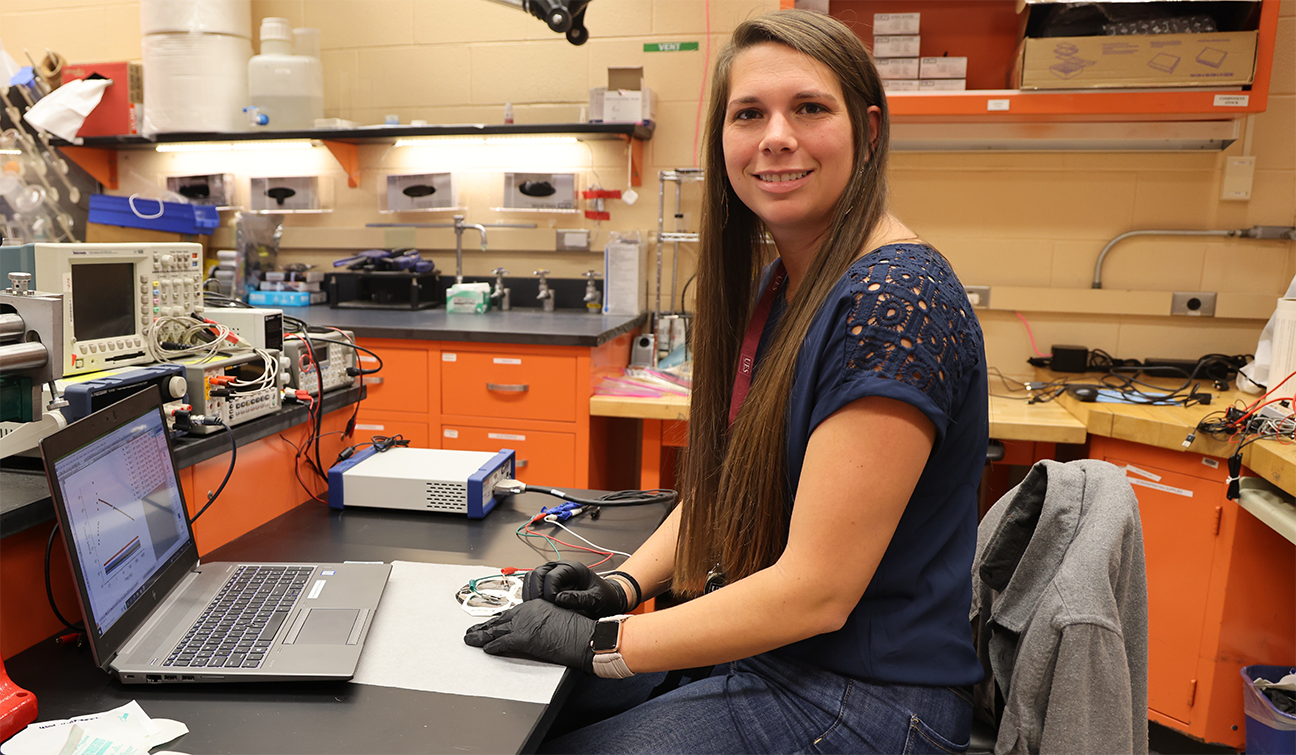AFRL accepting applications for fully funded graduate internship program
WRIGHT-PATTERSON AIR FORCE BASE, Ohio (AFRL) – The Air Force Research Laboratory, or AFRL, is accepting applications now through Jan. 20, 2023, for a fully funded, world-class graduate student internship program here: https://www.semi.org/en/collaborate/NBMC_AFRL_Internships. Applicants must U.S. citizens who are currently enrolled full-time in a graduate-level Master of Science or Ph.D. program at an accredited U.S.-based institution.
Selected candidates will be placed in AFRL’s Materials and Manufacturing Directorate and the 711th Human Performance Wing to gain hands-on experience conducting state-of-the-art research and prototype development with world-class mentors and senior scientists. In addition to collaborating with experts in specialty fields, internship awardees receive a housing allowance of up to $2,000 per month for off-base accommodations and a monthly stipend of $3,600 to cover meals, transportation and incidentals.
“We want to bring new talent to the local area,” said 1st Lt. Suren Uswatta, technical program manager in the Biomaterials branch. “All of the work [the interns] will be doing is state-of-the-art. They get really good exposure in terms of mentoring, more hands-on experience, more network-building. They will be joining the workforce very soon, so this is a great opportunity to build up that network within the DOD community.”
The internship opportunities are offered in partnership with the Nano Bio-Materials Consortium, or NBMC, an organization that advances human performance monitoring and performance augmentation technologies produced in the lab. NBMC will announce the final candidates for the eight open intern positions Mar. 6, 2023.

Graduate student intern Brittani Huegen works in the Air Force Research Laboratory, or AFRL, Liquid Metals Laboratory at Wright-Patterson Air Force Base, Ohio, Nov. 29, 2022, preparing an electromyography measurement using liquid metal-based electrodes. Huegen, a fifth-year Duke University Ph.D. candidate in electrical engineering, began her internship with AFRL’s Materials and Manufacturing Directorate in September 2022. AFRL is accepting applications for this fully funded graduate student internship program Dec. 1, 2022 through Jan. 20, 2023. (U.S. Air Force photo / Jonathan Taulbee)
Interns have the option to complete the internship during the summer immediately following graduation; however, they can complete the program within any consecutive three-month period within one year. All internships must be completed on or before Apr. 1, 2024.
“This can be really good for those students who do not want to leave their lab over the summer,” Uswatta said. “Sometimes they are needed during the summer months to conduct research at their own institutions. So, they have the flexibility to choose when they start and end their internship.”
The NBMC will cover 50% of each intern’s stipend, housing and relocation costs, and an AFRL principal investigator mentor will cover the remaining half. The Materials and Manufacturing Directorate’s Biomaterials branch leads the NBMC in partnership with Semiconductor Equipment Materials International, or SEMI, a non-profit global industry trade organization representing the electronics manufacturing and design supply chain.
Uswatta said the internship program attracts skilled researchers to the area, pulling talent from other regions and building up the workforce for Department of Defense labs such as AFRL.
“We want students to know that they can get a world-class internship right here in Dayton,” Uswatta said.
Dr. Chris Tabor, section chief in Polymers and Specialty Materials Technology Development, hosted an intern in the program’s first year, covering roughly half of the total cost.
Tabor said that he and other program mentors were “extremely pleased” with the quality of interns the program accepted last year.
“As the program enters its second year, I am really looking forward to seeing this trend of high-quality applicants continue,” Tabor said. “This is a great opportunity to connect graduate researchers to the NBMC, an external group that we have worked with for a long time, to direct them to various technical areas, to expand their awareness of opportunities outside of academia they may not have considered otherwise.”
Tabor cited tech transition—the ability to take scientific knowledge and expertise and put it to practical use, developing technology that can be picked up by industry and scaled up for production—as one of the program’s key goals.
“The transition pathway can be really hard,” Tabor said. “Maybe a research intern develops a technology within an academic setting, but then does not have anywhere to bring it. NBMC can connect these interns to numerous other industry partners that might be interested in developing these new technologies.”
For students who have just graduated from Ph.D. programs, summer internships allow them to gain experience while they decide upon next steps.
“This program gives us a chance to show these graduate students what AFRL is. It gives us a leg up to introduce them into the culture,” Tabor said. “We want to get them connected so they can apply their skills and build up the workforce.”
